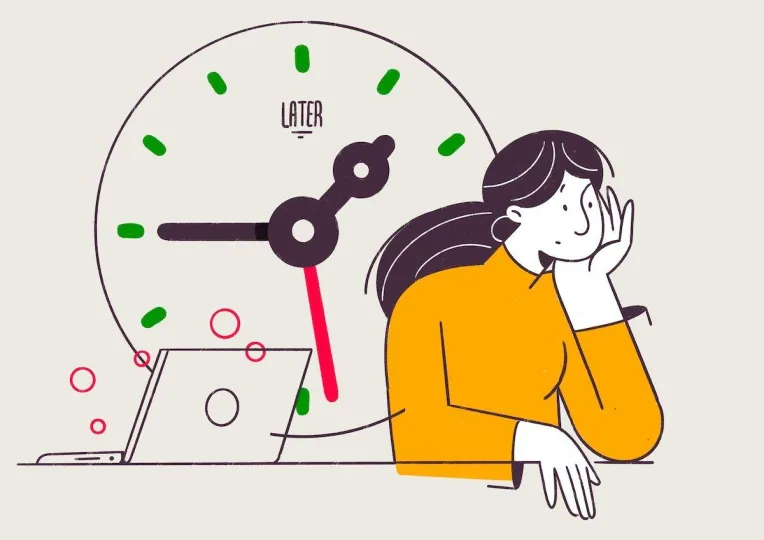Procrastination is a common struggle that affects nearly everyone at some point. Whether it's tasks at work, school assignments, or even personal projects, the tendency to delay can lead to stress, missed deadlines, and unfulfilled potential. Overcoming procrastination requires effective strategies and a shift in mindset. Here are 10 actionable approaches to help you stay focused and productive.
Table of Contents
1. Set Clear Goals
Establishing specific, measurable, achievable, relevant, and time-bound (SMART) goals helps eliminate ambiguity. Clearly defined goals make it easier to break tasks down into actionable steps. This clarity reduces the mental clutter that often leads to procrastination.
2. Break Tasks into Smaller Steps
Large tasks can feel overwhelming, leading to avoidance. By breaking projects into smaller, manageable chunks, you can create a sense of progress. Complete each small step and reward yourself, fostering motivation to continue.
3. Create a Schedule
Utilizing a planner or digital calendar to schedule specific times for tasks can enhance accountability. Commit to designated time slots dedicated to work. This structured approach facilitates focused periods of productivity followed by designated breaks.
4. Eliminate Distractions
Identifying and minimizing distractions is crucial for improving concentration. Create a dedicated workspace free of interruptions. Use tools like website blockers and silent modes on your devices to keep distractions at bay during work sessions.
5. Use the Pomodoro Technique
The Pomodoro Technique encourages focused work sessions followed by short breaks. Work for 25 minutes, then take a 5-minute break. This method not only maintains high levels of focus but also prevents burnout, making it easier to tackle tasks.
6. Develop a Positive Mindset
Believing in your abilities can significantly impact your productivity. Work on fostering a positive mindset by practicing self-compassion. Remind yourself that it's okay to make mistakes and that progress, no matter how small, is worth celebrating.
7. Leverage Accountability Partners
Having someone to hold you accountable can be a powerful motivator. Share your goals with a friend or colleague who can check in on your progress and provide encouragement. Engaging in mutual accountability can enhance commitment to tasks.
8. Implement Time Management Techniques
Utilize time management tools and techniques to prioritize tasks effectively. Explore Eisenhower Matrix or the ABC prioritization method to determine which tasks need immediate attention. Being organized helps relieve the stress that often contributes to procrastination.
9. Focus on the Consequences of Inaction
Instead of thinking about the effort required to complete a task, consider the potential consequences of not completing it. Visualizing the negative impacts can provide a sense of urgency, motivating you to start and finish tasks promptly.
10. Practice Self-Care
Regular exercise, proper nutrition, and sufficient sleep are fundamental to maintaining productivity. When you care for your body, you're better equipped to handle stress and stay focused on your tasks. Dedicate time each day to activities that rejuvenate you and provide clarity.
Key Takeaways
- Set SMART goals to provide clarity.
- Break tasks into smaller, manageable steps.
- Create a schedule to enhance accountability.
- Eliminate distractions to improve focus.
- Utilize time management techniques effectively.
- Leverage the power of accountability partners.
- Practice self-care to maintain energy levels.
FAQ
- What are common causes of procrastination?
Common causes include fear of failure, perfectionism, feeling overwhelmed, and lack of motivation. - How can I stop procrastinating immediately?
Start by committing to a small task for just 5 minutes and then gradually extend that time if you feel engaged. - Are there apps to help with productivity?
Yes, apps like Trello, Todoist, and Focus@Will can help you organize tasks and maintain focus. - How can I improve my time management skills?
Consider using time-blocking techniques and prioritizing tasks based on urgency and importance. - What is the best way to maintain motivation?
Regularly remind yourself of your goals and the reasons behind them. Reward yourself for completing tasks. - Can group work help reduce procrastination?
Yes, working in groups can increase accountability, providing shared motivation and helping you stay on track. - Is procrastination a sign of laziness?
Not necessarily. Procrastination can stem from various psychological factors, including anxiety and fear of failure.
Conclusion
Overcoming procrastination requires a proactive approach and commitment to self-discipline. Implementing strategies such as setting clear goals, breaking tasks into manageable steps, and maintaining a positive mindset can all contribute to improved productivity. By recognizing the causes of your procrastination and taking deliberate steps towards action, you can foster a more efficient and fulfilling workflow.



